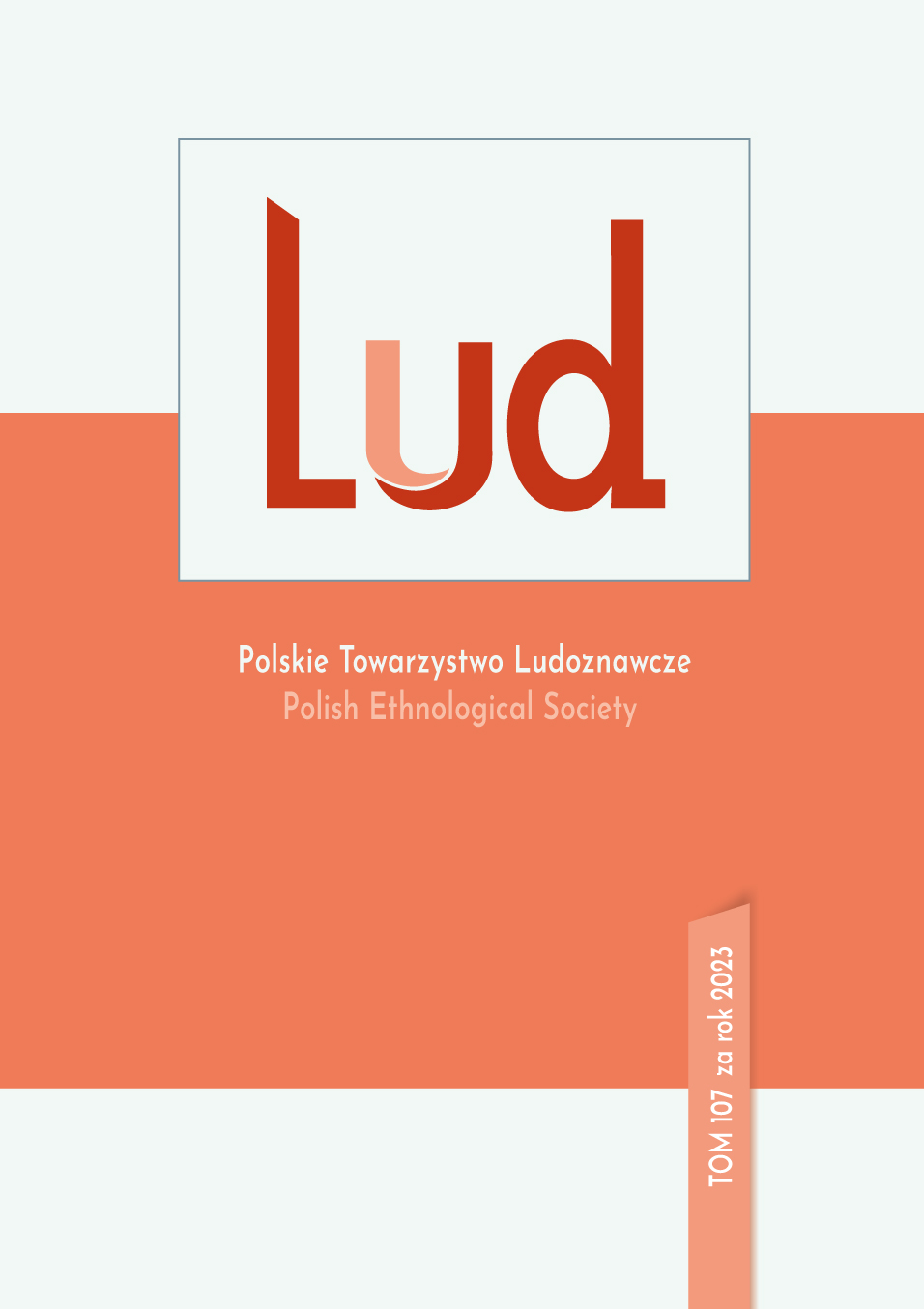In pursuit of the rejected "Jew from the Golah”. On life and works of dr. Jacob (Kobi) Weitzner
DOI:
https://doi.org/10.12775/lud107.2023.10Słowa kluczowe
Yiddish; Jew; Diaspora, Israeliness; Second Generation; Jewish Theatre; Yiddish playwriterAbstrakt
Since the establishment of the state of Israel in 1948 everything related to the Diaspora (“Golah”) such as culture, language, or mentality was considered despicable and Israelis tried to keep away from it. Dr. Jacob (Kobi) Weitzner a writer, playwright and Yiddish theater director. This article is not about his academic achievements or artistic works, but his seminal activity for the preservation of Jewish culture in the Diaspora.
Bibliografia
Guri, H. (2011). The Poems, part 3. Jerusalem: Steimastki Publishing.
Horovitz, D. (1993). Light Blue and Dust, 1948 Generation – Self-Portrait. Jerusalem: Keter.
Klein, Y. (2016, January 13). I want to be a Jew from the Golah. Haaretz. Retrieved October 8, 2020, from https://www.haaretz.co.il/opinions/2016-01-13/ty-article-opinion/.premium/0000017f-e710-df5f-a17f-ffde478d0000
Lewkowicz-Shenholz L. (2015). Powrót. YouTube web site. Retrieved September 12, 2020 from https://www.youtube.com/watch?v=0iuCkZa039w.
Manheim, K. (1952). The Problem of Generation, Essays in the Sociology of Knowledge. London: Rouledge & Kegan Paul.
Mittelpunkt, H. (1999). The Guide for the Visitor in Warsaw. A play in Habima Theatre, Tel Aviv, Israel, first show on March 27 1999.
Tchernichovsky S. (2020). האדם אינו אלא(Ha’adam Eino Ela). Benyehuda Project. Retrieved September 12, 2020, from https://benyehuda.org/read/2722 ,.
Yablonka, H. (2018). Children by the Book: Biography of a Generation: The First Native Israelis Born in 1948-1955. Rishon LeZion: Miskal – Yedioth Ahronoth Books and Chemed Books.
Vitkin Y. (2020). כיבוש הקרקע וכיבוש העבודה (Kibush Hakarka Ve-Kibush Haavoda) . Benyehuda Project. Retrieved , September 12, 2020, from https://benyehuda.org/read/917.
Pobrania
Opublikowane
Jak cytować
Numer
Dział
Licencja
Prawa autorskie (c) 2023 Lior Ester Lewkowicz-Shenholz

Utwór dostępny jest na licencji Creative Commons Uznanie autorstwa – Bez utworów zależnych 4.0 Międzynarodowe.
1. Autorzy udzielają wydawcy (Polskiemu Towarzystwu Ludoznawczemu) licencji niewyłącznej na korzystanie z utworu w następujących polach eksploatacji:
- utrwalanie Utworu/przedmiotu prawa pokrewnego;
- reprodukowanie (zwielokrotnienie) Utworu/przedmiotu prawa pokrewnego drukiem i techniką cyfrową (ebook, audiobook);
- wprowadzania do obrotu egzemplarzy zwielokrotnionego Utworu/przedmiotu prawa pokrewnego;
- wprowadzenie Utworu/przedmiotu prawa pokrewnego do pamięci komputera;
- rozpowszechnianie utworu w wersji elektronicznej w formule open access na licencji Creative Commons (CC BY - ND 4.0).
2. Autorzy udzielają wydawcy licencji nieodpłatnie.
3. Korzystanie przez wydawcę z utworu na ww. polach nie jest ograniczone czasowo, ilościowo i terytorialnie.
Statystyki
Liczba wyświetleń i pobrań: 436
Liczba cytowań: 0



